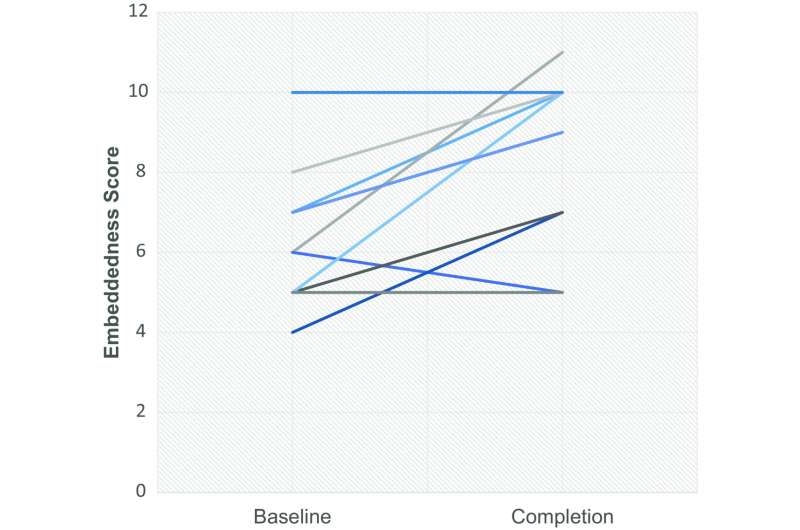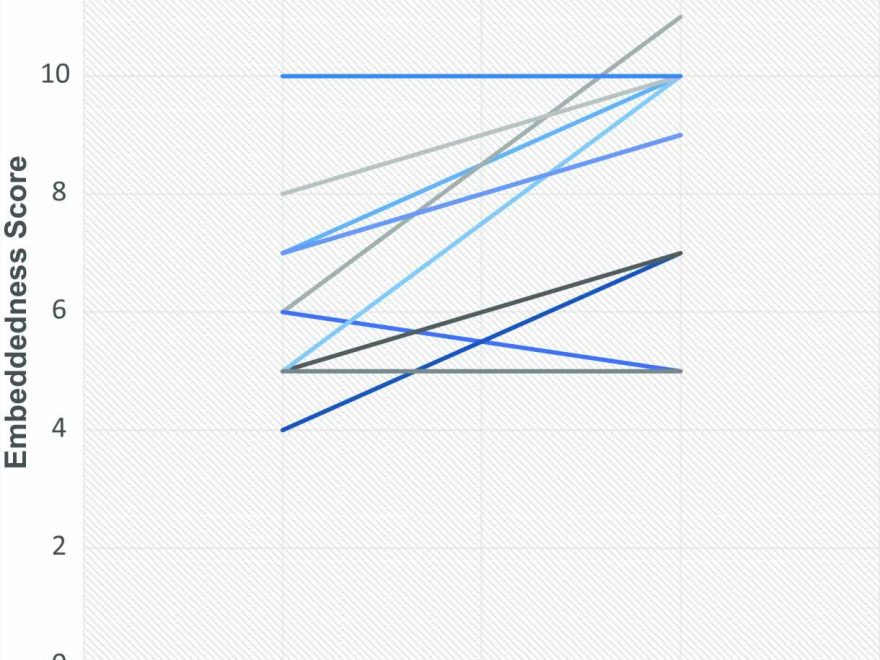
Learning health systems (LHS) is a multidisciplinary research field that seeks to improve clinical decision-making, promote personalized medicine, and identify best practices to optimize patient outcomes. By creating a feedback loop between real-time research and practitioners in the field, LHS aims to improve information access for scholars and accelerate the translation of knowledge into tangible improvements in patient care.
New research from the University of Minnesota School of Public Health (SPH), published in the Journal of Clinical and Translational Science, adds to the understanding of LHS effectiveness by exploring “embeddedness,” when a researcher is located within the system where research and practice happen, either as an employee or as a consulting expert who assists with the development, implementation and dissemination of research. Embeddedness is a vital part of LHS because it entails a researcher being connected to the systems they are trying to improve.
Despite the significance of embeddedness, tools to track it have not been previously developed. To address this gap, the researchers created the MN-LHS Embeddedness Tool, a self-administered system in which respondents rate their level of engagement.
In addition to describing the development of the tool, the study measured the embeddedness of several scholars by examining career trajectories. The study found:
- The tool rates levels of engagement across four domains: patients and family advisory groups; practice committees and local/regional health care system leadership; research institutions and agenda-setting organizations; and national clinical and professional networks.
- While rates of embeddedness within each domain at baseline and completion of the study period varied, they increased on average.
- Increases in embeddedness varied greatly across research trainees. Some had large increases across domains of embeddedness, while others had modest or focused increases. With an average increase of two points, this could mean substantial growth in one domain or more moderate growth across domains.
- The study used research trainee narratives to describe different trajectories of growth in embeddedness, including movement into local research administrative leadership, national professional groups, development of ties with patient groups, and others.
“Previous research underscores learning health system’s ability to improve health care practices through the systematic collection and analysis of data, and embeddedness is widely acknowledged as a core piece of LHS research and training,” said Nathan Shippee, an associate professor at SPH and lead author. “But despite the importance of embeddedness, we were not aware of tools for addressing its impact or improving its usefulness in scholar training programs.”
The study complements previous work on the Learning Health System Competency Appraisal Inventory (LHS-CAI). While the embeddedness tool examines how well the project and researcher are integrated or located within the system, the LHS-CAI focuses on the research trainee’s specific research skills necessary to carry out the project.
These are designed to work together to help research trainees, and programs make improvements that are optimally designed both scientifically and for best health care practices.
Source: Read Full Article
